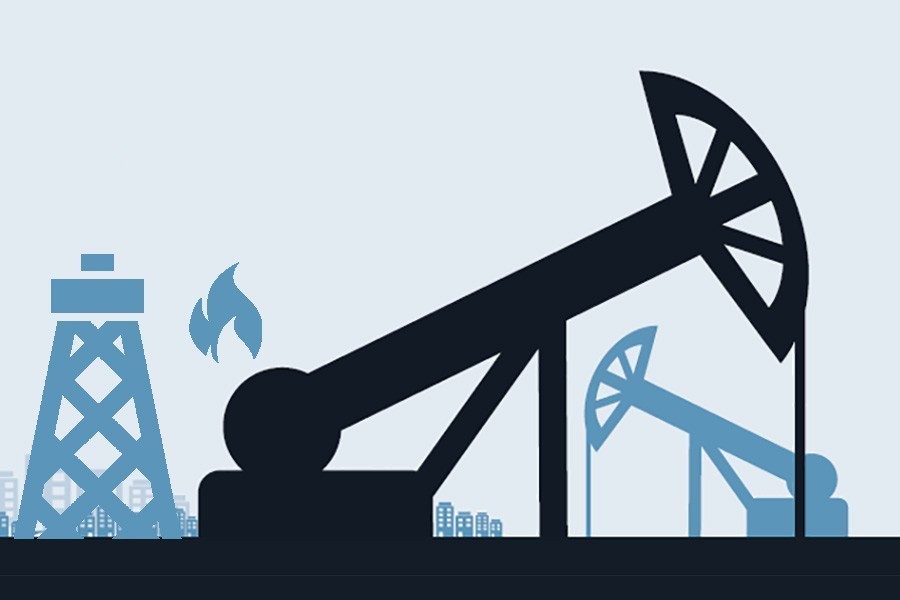The ongoing volatility of the international fossil fuel market has again come as a stark reminder of just how important it is for a country to have its own supply of hydrocarbon (HC). Not every country, however, is blessed with HC deposits. Bangladesh is considered lucky to have, if not oil, gas deposits in both onshore and offshore areas. So far, it could successfully extract a sizeable volume of gas from onshore blocks for domestic consumption. The rest may hardly meet the country's demand partially for another 10 to 12 years. Besides, the possibility of striking new deposits onshore is also not that bright.
So, the Bay of Bengal, where Bangladesh has its territorial rights extended up to 200 nautical miles, offers the best opportunity. Experts are hopeful about striking gas deposits within the country's maritime boundary. The successful discovery of huge gas deposits by India in the northern part and Myanmar in the south of the Bay of Bengal has made the prospect of Bangladesh finding gas in offshore areas even brighter. But allegations have it that relevant policymakers have faltered repeatedly in wooing international oil companies. These days, IOCs are not that interested in investing in exploratory works without sufficient seismic survey data supporting prospects of hitting HC reserves. This is the area where Bangladesh has dragged its feet, unnecessarily. Besides, Petrobangla, the state agency responsible for overseeing HC issues, reportedly is yet to prepare a befitting model production sharing contract (PSC) that would attract IOCs.
The state of the much-needed seismic survey highlights how bad things are in the country's quest for HC deposits. In 2015, a Norwegian-US firm was selected twice to carry out the multi-client seismic survey in the Bay through competitive bidding. But the cabinet committee gave its go-ahead in 2019. Following the outbreak of Covid-19 in the early part of 2020, oil prices plunged to a record low level. IOCs were least interested in buying survey data, leading to the holdup of the survey. Bangladesh could not get IOCs engaged in exploratory work in offshore blocks since 1997. It had floated the last bidding round 10 years back in 2012. Some shallow-water blocks and one deep-water block were awarded to the successful bidders. But they have drilled not a single exploratory well to date in the areas awarded to the IOCs.
Most IOCs found Model PSCs prepared in 2012 and 2019 unattractive, mainly because of gas and oil pricing. In its latest bid to attract IOCs, Petrobangla appointed a global consultancy firm to prepare a new Model PSC, the draft of which is ready. The final version of the PSC is expected to be completed soon. But non-availability of seismic survey data might create a problem even if the Model PSC is ready. Thus, the lack of seriousness to get the prospective offshore blocks explored for HC deposits is exacting a heavy toll on the state coffer. With oil and gas prices rising manifold and foreign exchange reserves coming under pressure, the government has now opted for countrywide load-shedding. The move would hurt production and cause suffering to the people. Even urgent actions are unlikely to deliver any results immediately, as far as the discovery of HC is concerned. But those would surely open up possibilities.


